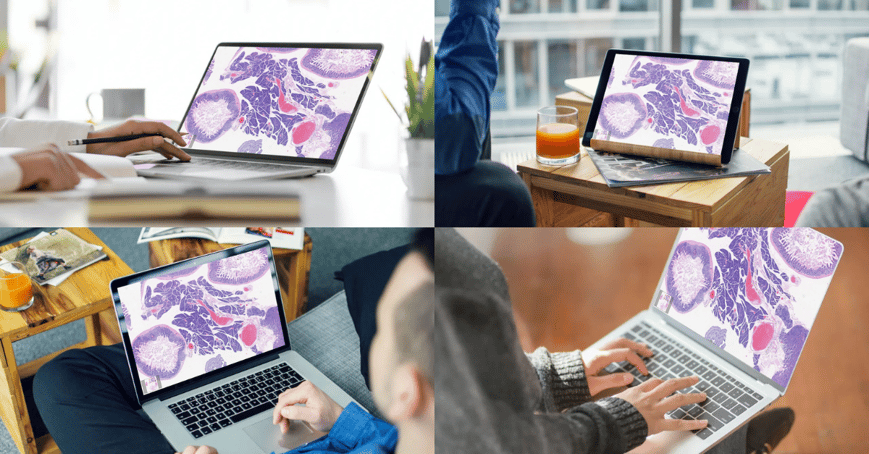Currently, drug development is very time consuming and labor-intensive. Scientists and pathologists go through hundreds of samples identifying variations to assess how a drug affects a certain tissue or animal. Digital pathology and artificial intelligence (AI) are extremely valuable in this process by improving efficiency. For example, toxicologic pathology research generates a huge number of slides and just adding digital imaging and AI to the workflow eliminates hours, if not days, of work. This allows a pathologist to focus on slides that do have variations, such as lesions, which are important for understanding drug mechanisms.
One of the biggest challenges in pharmaceutical pathology is the volume of slides that need to be analyzed. This, in fact, becomes a benefit with digitized imaging. The nature of digital image processing allows it to extrapolate and remember a significantly larger amount of data from the image than a human can on their own. Furthermore, as computers can store everything they have been taught, we are able to create an information-rich database.
The integration of AI-assisted image analysis uses all this information to create increasingly accurate predictions of what the image contains. Pathologists are trained to provide semi-quantitative analysis of tissues, but this human-dependent method harbors inter- and intra-observer bias. AI models eliminate these errors and can analyze all the information available to create true statistical data. Such data is transforming pathology and drug development and improving the pathologist's and patient’s confidence in the workflow.
Digital pathology advances in drug development are improving the therapeutic options available for a variety of diseases. With more time and data, the ability to gather, analyze, and share information becomes easier and leads to more effective, high-quality, focused research worldwide. Digitized information can be shared to anyone anywhere in the world, effectively multiplying the data a pathologist can access.
This is made even easier with cloud-based image viewing, management, and analysis software and is particularly effective for independent labs or experts working on rare diseases with less access to resources typically available in large institutions or for common conditions. Pathologists also gain the flexibility to collaborate with anyone on very specialized projects, further improving drug discovery globally.

Aiforia's cloud-based software enables pathologists and scientists from all around the world to access, validate and view the same images and results simultaneously from remote locations.
A significant benefit to the data we are now able to gather and analyze is the development of precision medicine. Sharing data with a wide community of scientists is improving our understanding of disease behavior at an individual level, resulting in the ability to develop tailored medical treatments for individual patients.
References